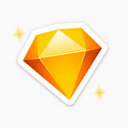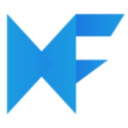Sketch vs MockFlow (2025 Comparison)
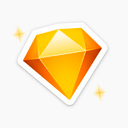
Sketch offers advanced design capabilities with a robust plugin ecosystem, making it ideal for professional designers seeking precision and customization.
- Advanced vector editing capabilities
- Extensive plugin ecosystem
- Robust prototyping features
- Steep learning curve for beginners
- Limited real-time collaboration
- Requires macOS
Free plan?
NoStarting price
$10 per month per user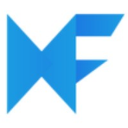
MockFlow provides an easy-to-use interface with real-time collaboration, perfect for teams needing quick and efficient wireframing solutions.
- Easy-to-use interface
- Real-time collaboration
- Affordable pricing
- Basic vector editing
- Limited advanced prototyping
- Smaller template library
Free plan?
YesStarting price
$14 per monthWhat is Sketch?
Sketch is a powerful design tool primarily used for creating user interfaces and user experiences. It offers a wide range of features that help designers bring their ideas to life, from vector editing to prototyping. Sketch is particularly popular among UI/UX designers due to its intuitive interface and robust plugin ecosystem, which allows for extensive customization. It helps streamline the design process, making it easier for teams to collaborate and iterate on designs quickly.
What is MockFlow?
MockFlow is a versatile wireframing and prototyping tool that simplifies the process of creating and sharing design concepts. It is particularly useful for teams that need to collaborate on projects, as it offers real-time collaboration features. MockFlow helps designers and developers visualize their ideas and gather feedback early in the design process, making it an essential tool for agile development teams. Its ease of use and comprehensive feature set make it a popular choice for both beginners and experienced designers.
Pros and Cons of Sketch vs MockFlow
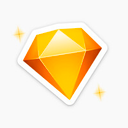
Pros & Cons of Sketch
- Sketch offers unparalleled vector editing tools, allowing designers to create intricate and detailed designs with precision. This feature is particularly beneficial for UI/UX designers who require high levels of detail in their work.
- The plugin ecosystem in Sketch is vast, offering a wide range of extensions that enhance its functionality. This allows users to customize their workflow and integrate with other tools seamlessly, making it a versatile choice for designers.
- Sketch's prototyping capabilities are robust, enabling designers to create interactive and dynamic prototypes that closely mimic real-world applications. This feature is essential for testing and iterating on designs before final implementation.
- While Sketch is powerful, it can be challenging for beginners to master due to its extensive features. New users may require time and training to fully leverage its capabilities, which can be a barrier for some.
- Sketch lacks real-time collaboration features, which can be a drawback for teams that need to work together simultaneously. This limitation may require teams to find alternative methods for collaborative work.
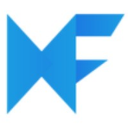
Pros & Cons of MockFlow
- MockFlow's interface is designed with simplicity in mind, making it accessible to users of all skill levels. This ease of use is particularly beneficial for beginners who need to create wireframes quickly and efficiently.
- The real-time collaboration feature in MockFlow allows multiple users to work on a project simultaneously, making it ideal for teams that need to iterate quickly and efficiently. This feature enhances productivity and teamwork.
- MockFlow offers competitive pricing, making it an attractive option for individuals and small teams on a budget. Its affordability does not compromise on essential features, providing good value for money.
- While MockFlow offers vector editing capabilities, they are basic compared to more advanced tools like Sketch. This limitation may be a drawback for designers who require detailed and intricate design work.
- MockFlow's prototyping features are limited, making it less suitable for complex design projects that require advanced interactivity. This limitation may require users to seek additional tools for comprehensive prototyping.
Sketch vs MockFlow: At A Glance
Value to Price
Sketch offers a comprehensive set of features that justify its price, making it a valuable investment for professional designers. Its extensive plugin ecosystem enhances its functionality, providing excellent value for money. MockFlow, while slightly more affordable, offers a good range of features for its price, making it a great choice for those on a budget. However, if you're looking for advanced design capabilities, Sketch might be the better option.
Ease of Use
MockFlow shines in terms of ease of use, with an intuitive interface that makes it accessible to beginners. Its drag-and-drop functionality simplifies the design process, allowing users to create wireframes quickly. Sketch, while also user-friendly, has a steeper learning curve due to its advanced features. If you're new to design tools, MockFlow might be the more approachable choice.
Functionality
Sketch is renowned for its robust functionality, offering a wide range of tools for UI/UX design. Its vector editing capabilities and prototyping features make it a favorite among professional designers. MockFlow, while functional, is more focused on wireframing and basic prototyping. If you need a tool with advanced design capabilities, Sketch is the better choice.
Scalability
Sketch is designed to scale with your needs, offering features that support complex design projects and team collaboration. Its ability to handle large files and projects makes it suitable for growing teams. MockFlow, while scalable, is better suited for smaller projects and teams. If you're working on large-scale projects, Sketch is the more scalable option.
Integrations
Sketch offers a wide range of integrations with other design and productivity tools, enhancing its functionality and allowing for seamless workflows. Its extensive plugin library further extends its capabilities. MockFlow, while offering some integrations, is more limited in this regard. If integrations are a priority, Sketch is the better choice.
Customer Support
MockFlow provides excellent customer support, with responsive assistance and helpful resources. Its support team is known for being attentive and quick to resolve issues. Sketch also offers good support, but its resources are more focused on self-help and community forums. If you value direct support, MockFlow might be the better option.
Security
Both Sketch and MockFlow prioritize security, offering features that protect your data and ensure safe collaboration. Sketch provides robust security measures, including encryption and secure file sharing. MockFlow also offers secure collaboration features, making it a reliable choice for teams. If security is a top concern, both tools are well-equipped to meet your needs.
Overall Rating
Sketch receives a higher overall rating due to its advanced features and extensive plugin ecosystem, making it a top choice for professional designers. MockFlow, while slightly lower in rating, is still a strong contender, especially for those seeking an easy-to-use wireframing tool. If you're looking for a comprehensive design tool, Sketch is the better option.
Sketch vs MockFlow: A Detailed Breakdown of Key Features
Vector Editing
Sketch excels in vector editing, offering precise control over design elements. Its tools are intuitive, allowing you to create complex designs with ease. MockFlow, while offering basic vector editing, doesn't match Sketch's advanced capabilities. If you're looking for a tool with robust vector editing features, Sketch is the clear winner.
Prototyping
Sketch provides powerful prototyping features, enabling you to create interactive designs that mimic real-world user experiences. MockFlow offers basic prototyping capabilities, suitable for simple wireframes. If you need advanced prototyping tools, Sketch is the better choice.
Collaboration
Both Sketch and MockFlow offer collaboration features, but MockFlow stands out with its real-time collaboration capabilities. This makes it ideal for teams working remotely. Sketch offers collaboration through cloud sharing, but it's not as seamless as MockFlow's real-time features. If collaboration is key, MockFlow might be the better option.
Real-time Collaboration
MockFlow's real-time collaboration is a standout feature, allowing multiple users to work on a project simultaneously. This is particularly useful for teams that need to iterate quickly. Sketch offers collaboration through cloud sharing, but it lacks the real-time aspect. If real-time collaboration is important, MockFlow is the better choice.
Template Library
Sketch offers a comprehensive template library, providing a wide range of design elements to kickstart your projects. MockFlow also offers templates, but its library is not as extensive. If you rely heavily on templates, Sketch offers more variety and options.
User Interface
Sketch's user interface is sleek and intuitive, designed to streamline the design process. MockFlow also offers a user-friendly interface, but it lacks the polish of Sketch. If a clean and efficient UI is important to you, Sketch is the better choice.
Pricing Comparison of Sketch and MockFlow
We’ve compiled the pricing tables and highlighted the key features of both Sketch and MockFlow to aid in your decision-making process. Let’s explore what each platform has to offer.
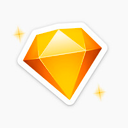
Sketch Pricing Plans
- Collaborate in real-time with team members seamlessly.
- Access unlimited free Viewers for easy sharing.
- Inspect designs, test prototypes, and handoff to developers.
- Preview designs on iPhone or iPad for mobile testing.
- Work privately offline with local document saving.
- Keep your license forever with one-time purchase.
- Receive one year of updates for the Mac app.
- Excludes collaborative features and web app access.
- Unlimited online storage for all design files.
- Invoice-based billing for streamlined financial processes.
- Powerful permissions directory for team management.
- Priority support and dedicated customer success manager.
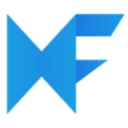
MockFlow Pricing Plans
- Includes 1 wireframe project with certain page limits.
- Access to 1 flow diagram and 1 UX document.
- Create 1 visual sitemap with all templates available.
- Receive 100 AI credits maximum for personal use.
- Collaborate with unlimited reviewers and on-design comments.
- Translate designs to multiple languages with built-in libraries.
- Generate wireframes and sitemaps from prompts using AI.
- Export designs to PDF, images, and PPT formats.
- Conduct video design meetings and team chat within the editor.
- Integrate with Slack, MS Teams, Trello, and Google Drive.
- Manage licenses and track project activity with analytics.
- Access 1200 AI credits per user per month for design tasks.
- Securely migrate user data and manage licenses efficiently.
- Single Sign-On with Okta, Azure, Google Suite, and OneLogin.
- Offline desktop app for Windows and MacOS with editable files.
- VIP support and compliance for enterprise needs.
Our Rating Methodology
We thoroughly evaluate each design tool, focusing on key aspects like functionality, ease of use, and scalability. By analyzing user feedback and conducting hands-on testing, we ensure our recommendations are reliable. Each factor is weighted to provide an accurate final rating, helping you choose the best tool for your needs.
Sketch or MockFlow: Which One Matches Your Business Needs?
Choose Sketch If You Need ...
- Advanced design capabilities
If you are a professional designer looking for a tool with advanced design capabilities, Sketch is the ideal choice. Its robust vector editing and prototyping features make it perfect for creating intricate and detailed designs.
- Extensive plugin ecosystem
If you need a tool that offers extensive customization options, Sketch's plugin ecosystem is unmatched. It allows you to tailor the tool to your specific workflow, enhancing productivity and efficiency.
Choose MockFlow If You Need ...
- Easy-to-use interface
If you are a beginner or need a tool with an easy-to-use interface, MockFlow is the perfect choice. Its intuitive design makes it accessible to users of all skill levels, allowing you to create wireframes quickly and efficiently.
- Real-time collaboration
If you need a tool that supports real-time collaboration, MockFlow is the ideal option. Its collaboration features allow multiple users to work on a project simultaneously, enhancing teamwork and productivity.
Frequently Asked Questions
 Which tool is better for advanced prototyping?
Which tool is better for advanced prototyping?
 Is MockFlow suitable for beginners?
Is MockFlow suitable for beginners?
 Does Sketch offer real-time collaboration?
Does Sketch offer real-time collaboration?
 Which tool offers better value for money?
Which tool offers better value for money?
 Can MockFlow handle large-scale projects?
Can MockFlow handle large-scale projects?
 What are the main differences between Sketch and MockFlow?
What are the main differences between Sketch and MockFlow?

Anastasia Belyh
Anastasia Belyh is a senior tech writer with over 15 years of experience in marketing, sales, and business software. Having worked in investment banking, management consulting, and founded multiple companies, her in-depth knowledge and hands-on expertise make her software reviews authoritative, trustworthy, and highly practical for business decision-makers.

